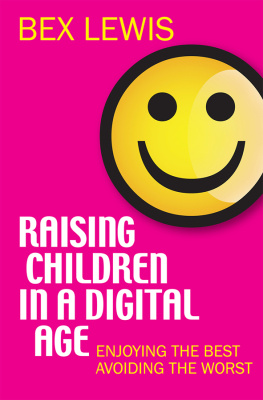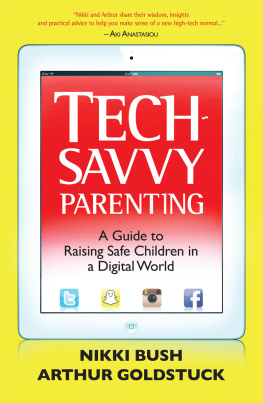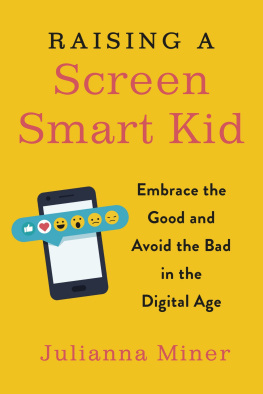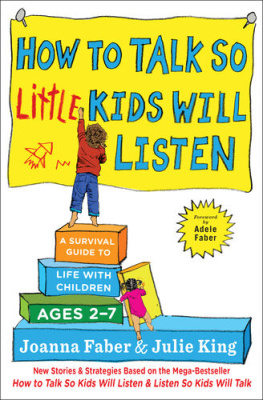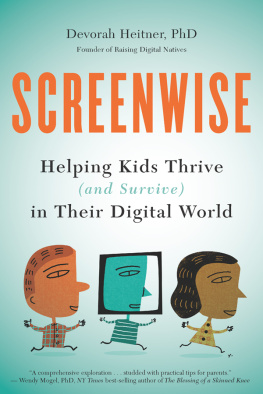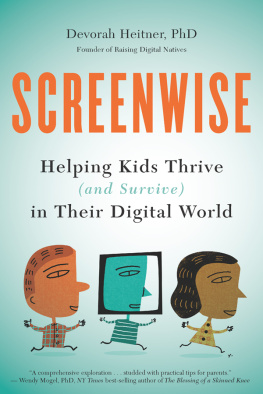Hachette Book Group supports the right to free expression and the value of copyright. The purpose of copyright is to encourage writers and artists to produce the creative works that enrich our culture.
The scanning, uploading, and distribution of this book without permission is a theft of the authors intellectual property. If you would like permission to use material from the book (other than for review purposes), please contact permissions@hbgusa.com. Thank you for your support of the authors rights.
Little Brown Spark is an imprint of Little, Brown and Company, a division of Hachette Book Group, Inc. The Little, Brown Spark name and logo are trademarks of Hachette Book Group, Inc.
The publisher is not responsible for websites (or their content) that are not owned by the publisher.
The Hachette Speakers Bureau provides a wide range of authors for speaking events.
To find out more, go to hachettespeakersbureau.com or call (866) 376-6591.
Dedicated to my Mom and Dad.
I NEVER PLAY video games alone; I always sit on the sofa with my two boys, ten and twelve years old. We all thumb away at our gamepads together. Gaming is one way we bondone way we engage in family time.
You would probably imagine that anyone who dedicates as much of his energy to thinking about digital play as I do would want to sneak in some time with adult games like Bioshock, Fallout, or The Last of Us once the kids head off to bed. But I dont. Games do not actually interest me in and of themselves. I am concerned only with the ways in which they bring people togetherfamilies, friends, communities. I am interested in the cultural aspect of gameswhat it means to be a gamer, and how digital play influences the ways we think about the world.
Video game narratives are fascinating. In some ways, they are very much like interactive versions of the stories we enjoy on television or at the movies. They can be like theater, like novels, like tales told around a campfire. When you consider that almost every child in the United States plays video games, it is safe to say that they may even be the primary form of narrative for the twenty-first century. In other words, video games are the new bedtime stories, the new fairy tales, the new mythology, perhaps even the new scripture. They are the freshest form of written or recorded communication practices, which most scholars believe started around the twenty-seventh century BCE. That is when the earliest examples of literature appeared in ancient Mesopotamia. But long before that, way farther back than we could ever possibly imagine, stories were passed from one generation to the next by word of mouth.
Take a moment to consider just how mind-blowing the shift from oral to written storytelling must have been. It represented a complete change in the way ancient humans organized their communities, their societies, their civilizations. Those of us who lived through the transition to personal computers and smartphones think it was a big deal to see the world as we knew it completely disrupted when social networking and email became commonplace. But that was nothing compared to what it must have been like to live through the beginning of written language. It may have been the greatest technological shift of all time. The written word enabled people to remember and store information. It made it possible to send a letter to a loved one in a faraway place. It empowered folks to share expertise without ever having to meet in person. It allowed generations of humans to distribute knowledge across time.
Thanks to the written word, I am moved to tears when I take my children to visit the Plaka neighborhood beneath the ancient Acropolis in Athens, Greece. We walk along the same narrow market streets that Socrates and Plato once roamed. These philosophers died two and a half millennia ago, yet they are still educating the young adults in my college classroom almost every day. All because their ideas are preserved in writing. The ingenuity of the ancient people who first imagined symbolic language systems is astounding. Long before the telephone, the internet, and video games, this was the trendy new technology that made it possible for people to collaborate and cooperate in ways that transcend both time and space.
Of course, written languagejust like smartphones and tabletshad its critics in the beginning. Most famous among them may have been the great philosopher Socrates. He did not believe anything certain or clear could come from what was written down. He compared writing to paintingwhat the artist presents may look like the actual thing, but it is really just an illusion, presented from a single perspective. According to Socrates, painting fails to represent experience because it is static and fixed. There is no room to probe. There is no space for empathy. It is not interactive. Similarly with written words, Socrates said, referring to the elements of written language as if they were autonomous beings, you may think they spoke as if they had some thought in their heads, but if you ever ask them about any of the things they say they point to just one thing. The same each time.
Thankfully, Socratess student Plato was a little more comfortable with technological change; he probably would have been a gamer. Plato recognized the importance of recording his teachers thoughts. And because he didbecause he wrote down the dialogues of SocratesI have the good fortune of being able to teach the philosophers ideas to undergraduate college students almost 2,500 years after they were spoken. Perhaps Plato understood that written language corresponded with a fundamental change in what it meant to live in the world as a human being. Perhaps he knew it would impact the ways we worked, played, and accomplished everyday tasks.
But was he right to ignore his teachers wishes and put Socratess words in writing? Maybe not. One could argue that history ultimately corroborated Socratess concerns. As twentieth-century philosopher Alfred North Whitehead once said, The safest general characterization of the European philosophical tradition is that it consists of a series of footnotes to Plato. In other words, for almost 2,500 years we have been scouring Platos texts, trying to guess what, exactly, Socratess words really meant. Nobody can ever be certain. Interpretation after interpretation is published; one PhD after another is granted. But Socratess thinking remains evasive. Why? Because we cannot ask the man himself what he was trying to say. We cannot interact with the writing. Alas, all we have are words that point to just one thing. The same each time.
Touch, Socrates.
The great gadfly-philosopher may have been correct about the limitations of writing, but he missed the benefits. Plus, his resistance was ultimately futile because the shift from oral to written storytelling was inevitable. Just like the printing press, the mechanical clock, the train, the telegraph, the radio, the camera, and many other transformative technologies: by the time the critics could articulate their objections, it was already too late. Society had changed in ways that necessitated new tools. Thats generally how these things work. Human thinking changes; then, we build tools that help us interact with the world in ways that resonate with our new ways of thinking.
Tools do not use us, we use them. We are in control.


